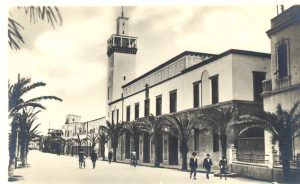The Guardian – 4 Settembre 2009
Before the hullabaloo over the celebrations in Libya passes away, it is worth making a small but intriguing point.
As noted earlier this week, one of the few western leaders to turn up was Silvio Berlusconi (though his government stressed it was to celebrate, not Colonel Gaddafi ‘s seizure of power, God forbid!, but the first anniversary of a co-operation treaty with Libya ). The conventional explanation of Berlusconi’s chumminess with Gaddafi (you may recall he had the colonel over for a high-profile visit in June ) is that he has no alternative.
The media tycoon returned to office last year mainly because of a promise to crack down on crime and clandestine immigration. And if clandestine migrants from Libya continue to land on Italy ‘s southern shorelines and islands, he will be accused of failing to deliver. In May, for the first time, Tripoli agreed to take back migrants intercepted by the Italians in international waters (controversially, because they do not have a chance to apply for asylum). Libya’s agreement was a direct outcome of the co-operation treaty mentioned earlier and signed in August 2008 after a diplomatic operation handled personally by Berlusconi, and from which Italy’s professional envoys were almost wholly excluded. Among other things, the treaty promised the Libyans extensive investment, partly in reparation for Italy’s colonial wrongdoings.
But the two leaders are connected by something other than political expediency. Their families have a common (and highly debatable) business interest.
In June, the small Italian news agency Radiocor reported that a Libyan company, Lafitrade, had taken a 10% stake in Quinta Communications , a cinema production company founded by a Tunisian-born but French-based entrepreneur, Tarak Ben Ammar. Lafitrade is controlled by the Gaddafi’s family’s investment vehicle, Lafico.
So far, so uncontroversial. Except that a) one of the other firms invested in Quinta Communications, with a stake of around 22%, is a Luxembourg-registered investment company owned by the Berlusconi family investment vehicle, Fininvest; and b) Quinta Communications and Mediaset , the Berlusconi-founded TV empire, each own a one-quarter stake in a new satellite TV channel for the Maghreb, Nessma TV.
This would seem to constitute a pretty staggering conflict of interest for Berlusconi, to add to the many he already has in Italy. But even leaving that aside, one of Nessma’s target markets is Libya. And by letting the colonel’s minions into Quinta, Berlusconi and Ben Ammar have handed a share in the ownership of the station to the Libyan regime. It will be interesting to see the extent to which Nessma’s journalists will feel free to criticise Gaddafi’s running of the country.
Ben Ammar, a businessman pure and simple, can do what he likes. But Berlusconi is in a rather different position as prime minister of a democratic nation.
What is as striking as anything about all this is the role played – or rather, not played – by the Italian media. In all the thousands of words I have read and heard since June about the dealings between the Berlusconi and Gaddafi governments, I had not read even one that called attention to this new link between the two leaders. My attention was drawn to it by a reader. Libya’s entry into Quinta, which I suspect would have been front-page news in any other European country, was reported briefly by a couple of dailies, but in their financial section. Neither piece made any allusion to the link to Nessma.
When Berlusconi visited Tunisia last month, some of the reporters who accompanied him chronicled his visit to a local satellite TV station and described how he had chatted in his usual, apparently relaxed, fashion to journalists in the newsroom. The station was Nessma. Only the Italian news agency Ansa, as far as I can make out, was indelicate enough to mention that the Berlusconi family’s TV empire was one of the owners. And that was in the last paragraph of its correspondent’s dispatch.
John Hooper

